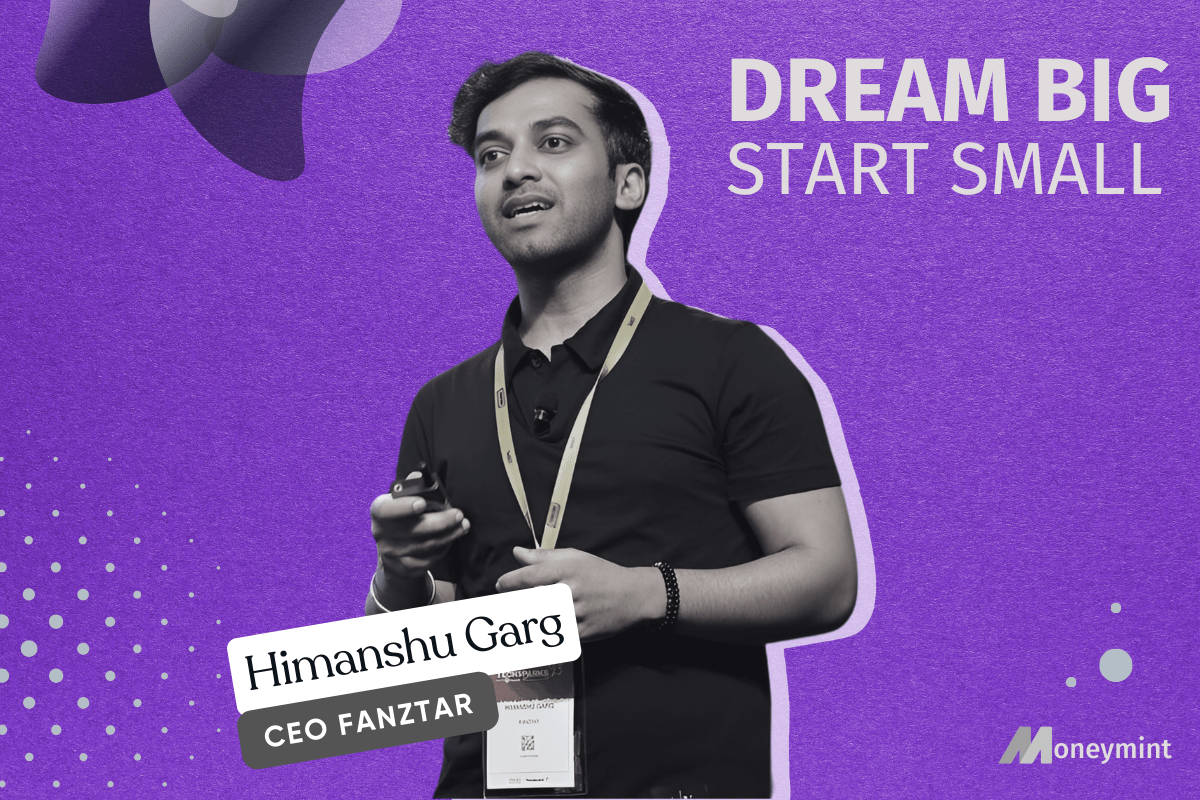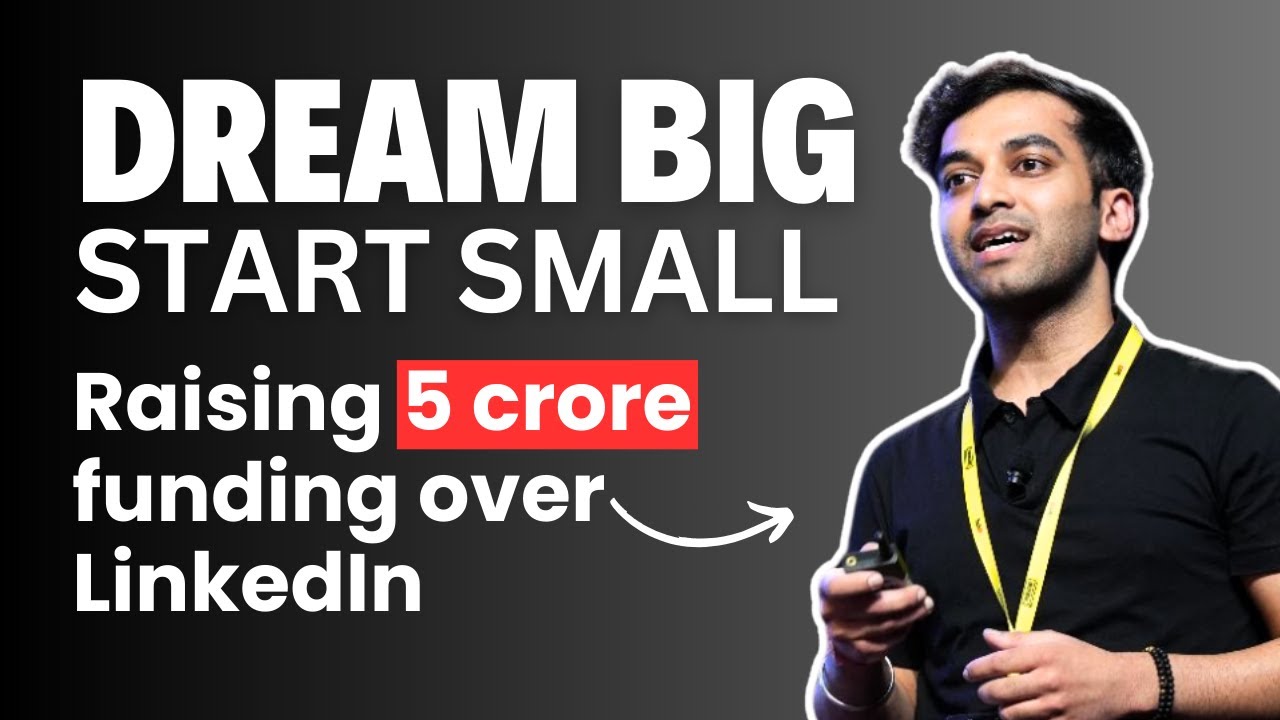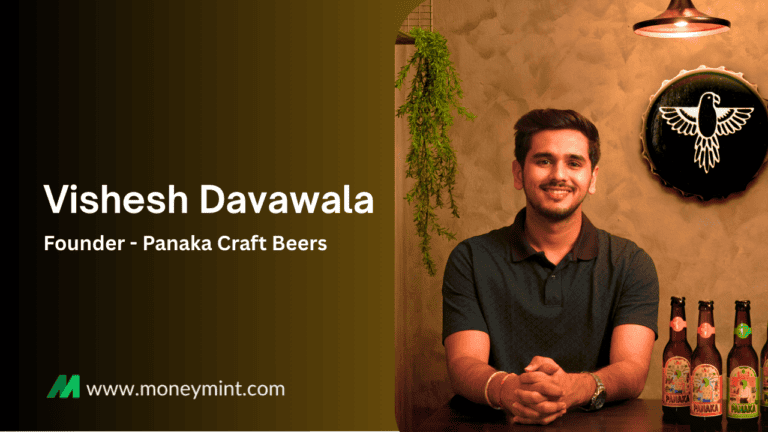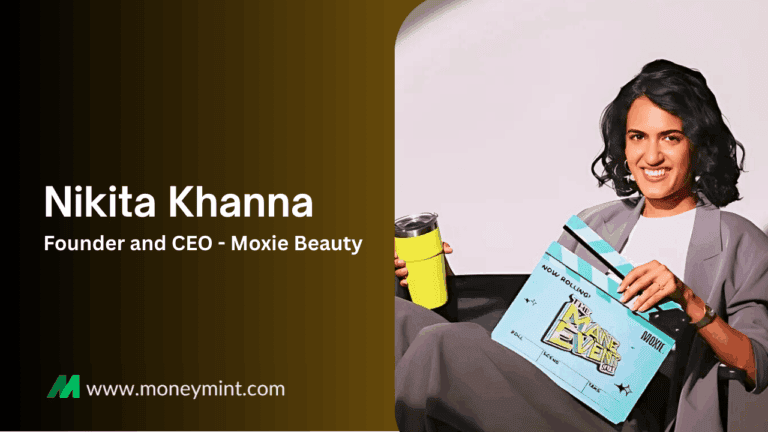Recently, the creator economy has emerged as a powerful force. It enables individuals to monetize their content and build sustainable careers. One startup at the forefront of this revolution is Fanztar, founded by Himanshu Garg. In a recent podcast interview, Himanshu shared his journey and the innovative approach that Fanztar is taking to empower small creators.
Humble Beginnings of Himanshu Garg
Himanshu Garg’s journey began in a small town in Punjab named Mandi Gobindgarh. After completing his schooling, he moved to Chandigarh for IIT coaching and subsequently graduated from IIT Delhi.
Early Career and Inspiration
Stints at various startups like Delhivery marked his early career. This was where he gained invaluable experience in the startup ecosystem. It was during this time that Himanshu’s passion for entrepreneurship was ignited.
Himanshu’s first job at Delhivery played a crucial role in shaping his entrepreneurial mindset. He joined as a software developer but soon transitioned to the New Ventures team, where he was involved in launching new business verticals. This experience provided him with a deep understanding of the startup landscape and the challenges of building and scaling a business.
First Business Attempt
After Delhivery, Himanshu tried to start an import-export business. The idea was to bring cool products from the US and Europe for India’s young generation. This venture wasn’t successful, but it taught him valuable lessons about detailed business planning and understanding customs charges.
“My assumptions and business plans were not detailed out. I skipped a lot of things.”
But the good thing that came out of it was, he reconnected with a senior who was running an early-stage healthcare startup. He joined this startup as a business head, working there for about 2.5 to 3 years.
This experience was very rewarding and gave him insights into running a young startup with a team of 10-15 people.
Success Story of Himanshu Garg
Founding Fanztar
Himanshu left his job without a concrete plan but knew he wanted to start something of his own. He spent 3-4 months thinking and talking to people about potential ideas in the creator economy space.
In early 2022, Himanshu and his co-founder Sahil decided to work full-time on their idea. They created a pitch deck and updated their LinkedIn profiles, which unexpectedly led to interest from VCs.
Within 3-4 months, they closed their funding round, considering themselves fortunate to have secured backing quickly.
Fanztar’s Evolution
The initial idea for Fanztar was to provide monetization tools for creators, especially those who weren’t in the top 0.1%. They developed a model where creators could offer a share of their future earnings to fans.
Over time, the concept evolved based on feedback and market needs. It took them about two years to complete the full cycle of their business model.
The Concept of Fanztar
Fanztar allows creators to monetize their content by offering a share of their future earnings to their followers through digital or fan cards. These cards, which are essentially non-fungible tokens (NFTs), are linked to the intellectual property rights of the content that creators will produce over a specified period.
This innovative model not only provides creators with a new revenue stream but also fosters a deeper connection between creators and their fans.
“A creator can sign up on the Fanztar platform and create a profile to launch their fan card collection. These digital cards are linked to the IP rights of the content that the creator will produce over the next 18 months. The buyer of this card gets access to a certain set of royalties in the future,” Himanshu explained.
How They Hired Their First Employee Without Funding
Himanshu and his co-founder had just raised funding but hadn’t received the money in their bank account yet.They discovered a passionate blockchain developer working in a Goa warehouse through AngelList.
Given their uncertain funding situation, they offered the candidate an internship for 15-30 days, with the promise of a full appointment letter afterwards. This hire turned out to be one of their best decisions.
Work-Life Balance (Hint: It Doesn’t Exist)
Himanshu notes that you don’t always work 12-15 hours every day throughout the year. There are periods of intense work and periods where you can take time off.
“I think, Aditya, there’s no balance-balance. If you want balance, you should probably not be a founder.”
Himanshu believes that the question of work-life balance arises when you’re not enjoying your work. He says that when you’re passionate about what you’re doing, work doesn’t feel like a burden.
Himanshu’s Advice for First-Time Entrepreneurs
Himanshu strongly believes that entrepreneurship is something you can only truly understand by doing it. He states, “The thing you can’t learn from anyone, I think you learn when you do it.”
Himanshu advises, “Just focus on taking one step ahead. It shouldn’t be that a day passes and you haven’t learned anything.”
He suggests that entrepreneurs should focus on taking steps forward, even if they don’t have everything figured out.
“There will be days when you’ll be very, very devastated… but you need to have the ability to sleep peacefully and keep your mind calm even in uncertain times.”
With over 1,000 creators onboarded and 44,000 fan cards sold in just one year, Fanztar is poised to make a significant impact in the creator economy. Despite facing challenges in educating creators about this novel concept, Himanshu’s perseverance has driven Fanztar’s growth. You can watch the whole podcast below.





